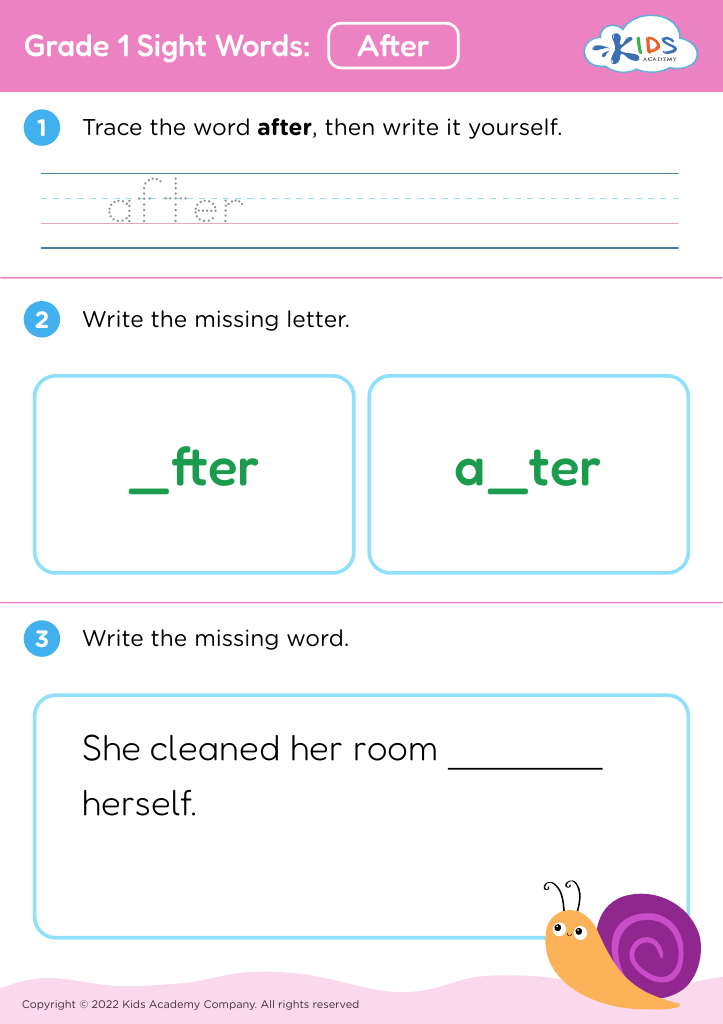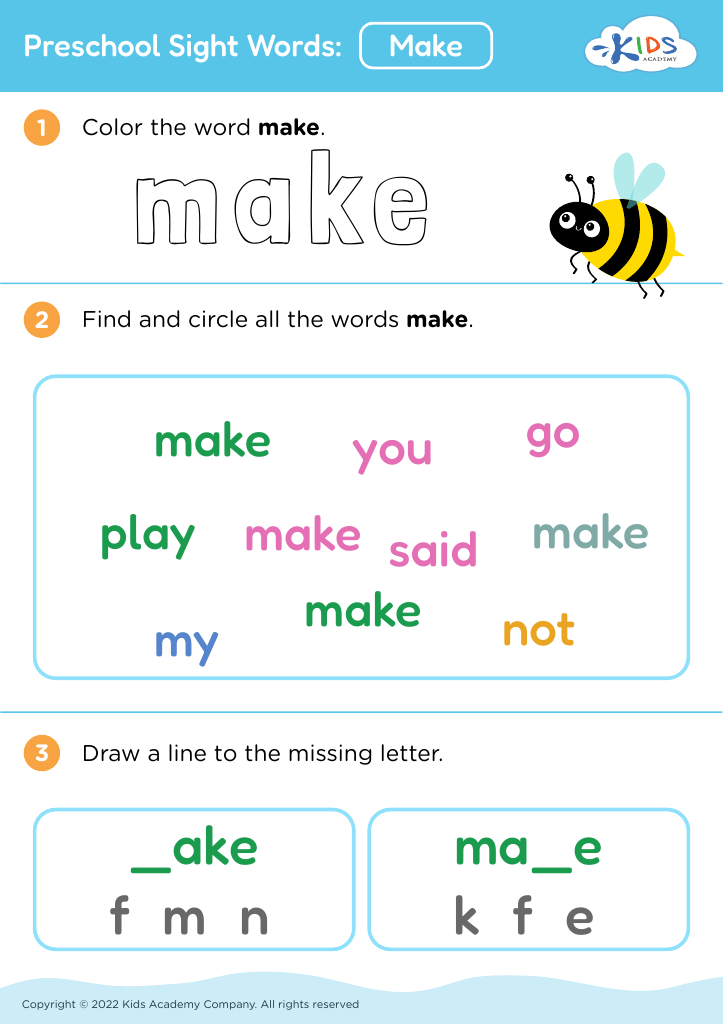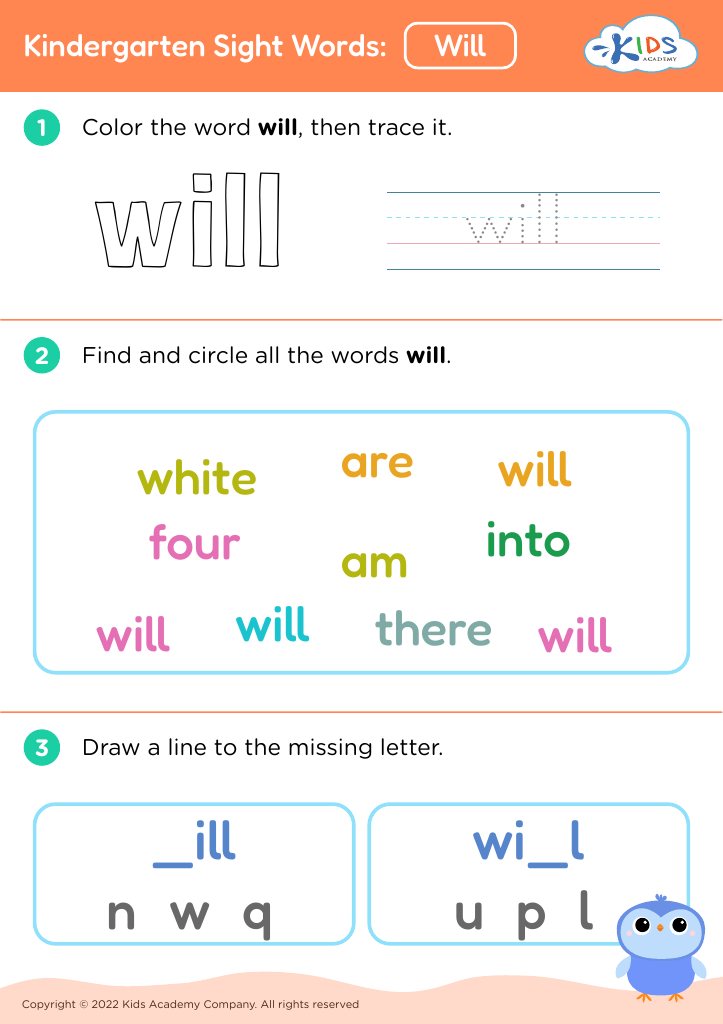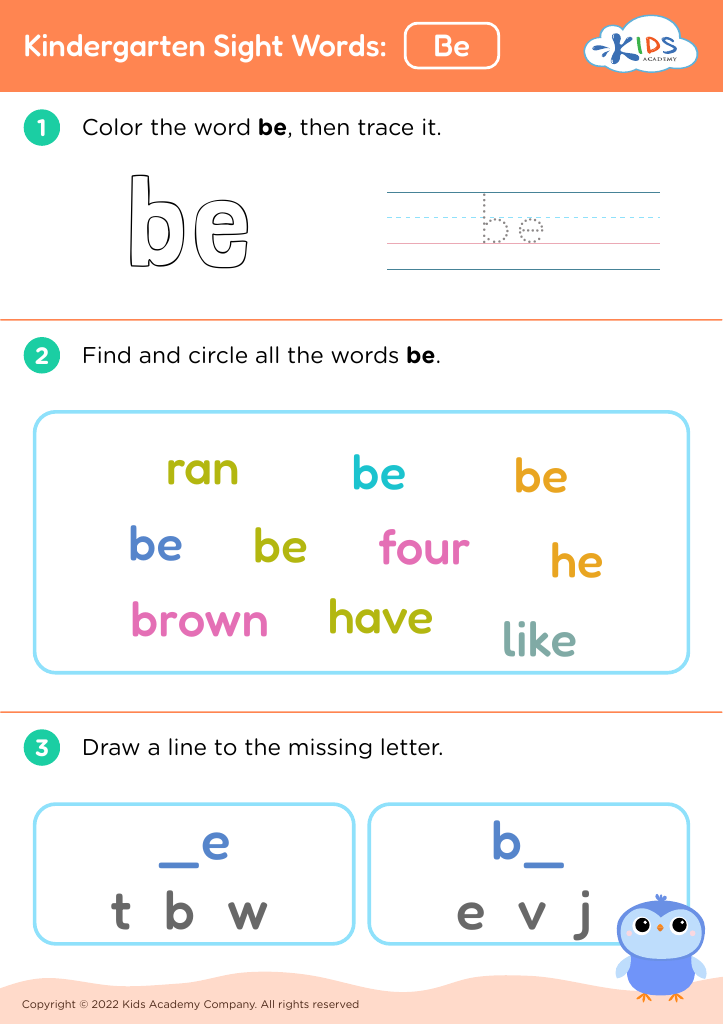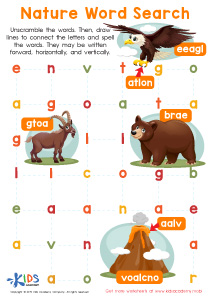Simplifying Fractions Sight Words Worksheets for Ages 3-6
4 filtered results
-
From - To
Introduce your young learners to the essentials of fractions in a fun and engaging way with our Simplifying Fractions Sight Words Worksheets, designed specifically for ages 3-6. These colorful and easy-to-understand worksheets seamlessly blend early reading skills with basic math concepts. Children will master important sight words while learning to simplify fractions, building a strong foundation for future math success. Perfect for at-home practice or classroom use, these printable worksheets use playful illustrations and simple instructions to make learning enjoyable. Unlock your child's potential with our expertly crafted resources that support early educational milestones.
Simplifying exposure to sight words and fractions for children aged 3-6 is crucial in establishing a solid educational foundation. Sight words are frequently occurring words in English that might not follow standard phonetic patterns but are essential for fluent reading. Early introduction helps children recognize these words by sight, ensuring smoother and quicker reading progress. This boosts their confidence, fosters a love for reading, and enhances comprehension skills crucial for their educational journey.
Simplifying the fundamental concepts of fractions is also important despite the subject's complexity. At this young age, children are naturally curious and absorb information rapidly. Introducing basic ideas of fractions helps them understand parts of a whole, a concept they encounter in everyday activities like sharing toys or snacks. Using simple, concrete examples and visually engaging materials can make this abstraction more accessible, setting a groundwork for more complex mathematical concepts in the future.
Teachers and parents who prioritize these early educational strategies ensure the child builds indispensable reading and mathematical skills. Extensive, playful, and gentle repetition of sight words and basic fractions embeds critical cognitive capabilities that support later academic achievements, thus fostering an enduring eagerness to learn and explore.

